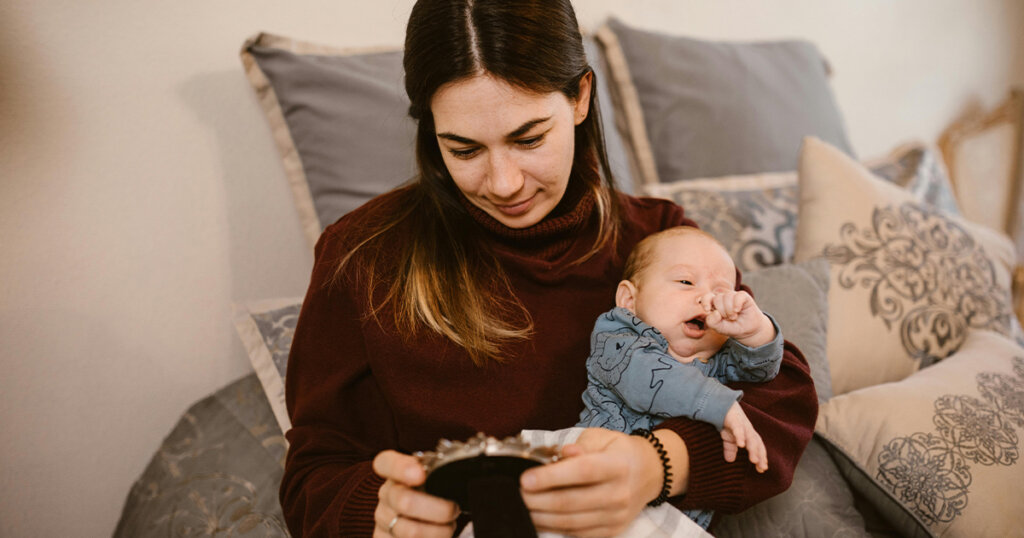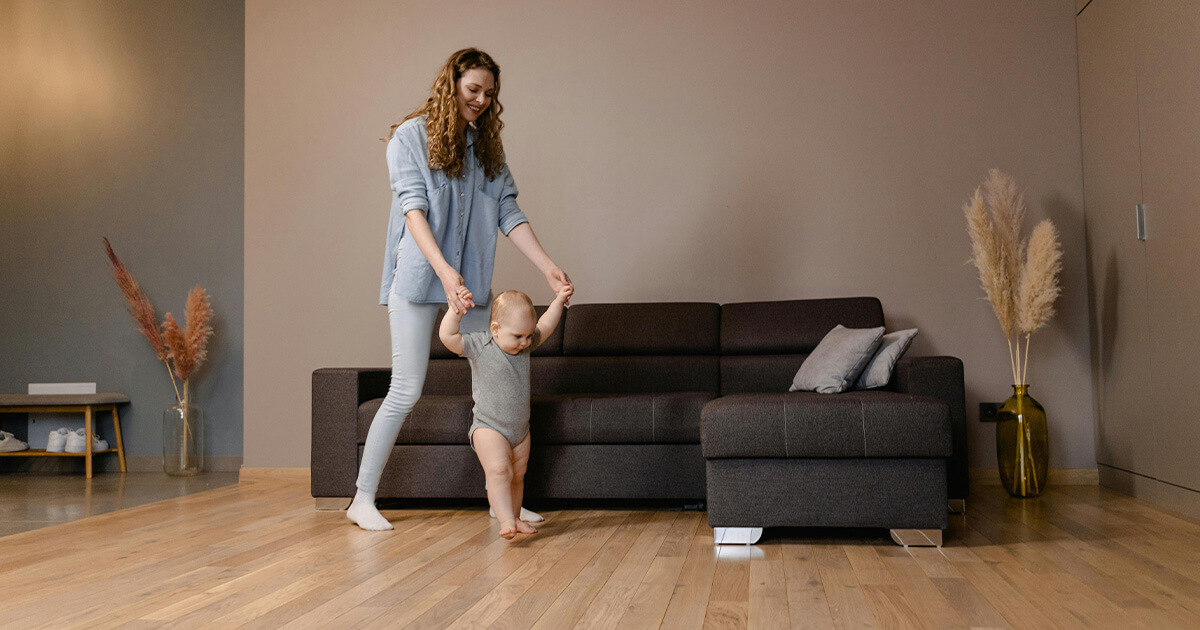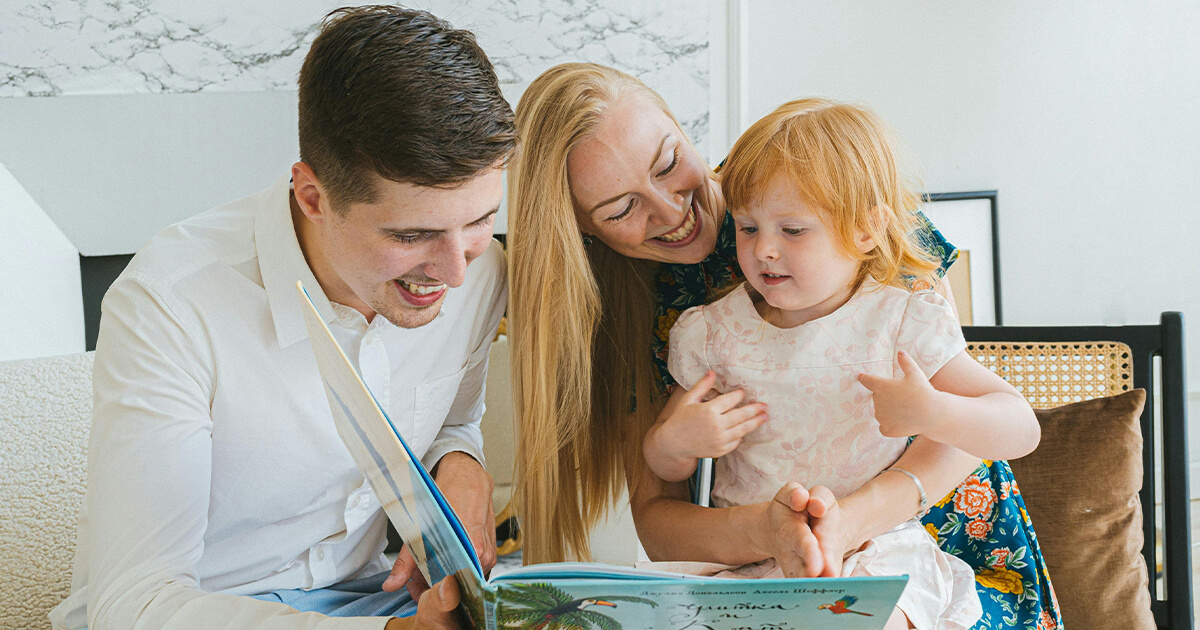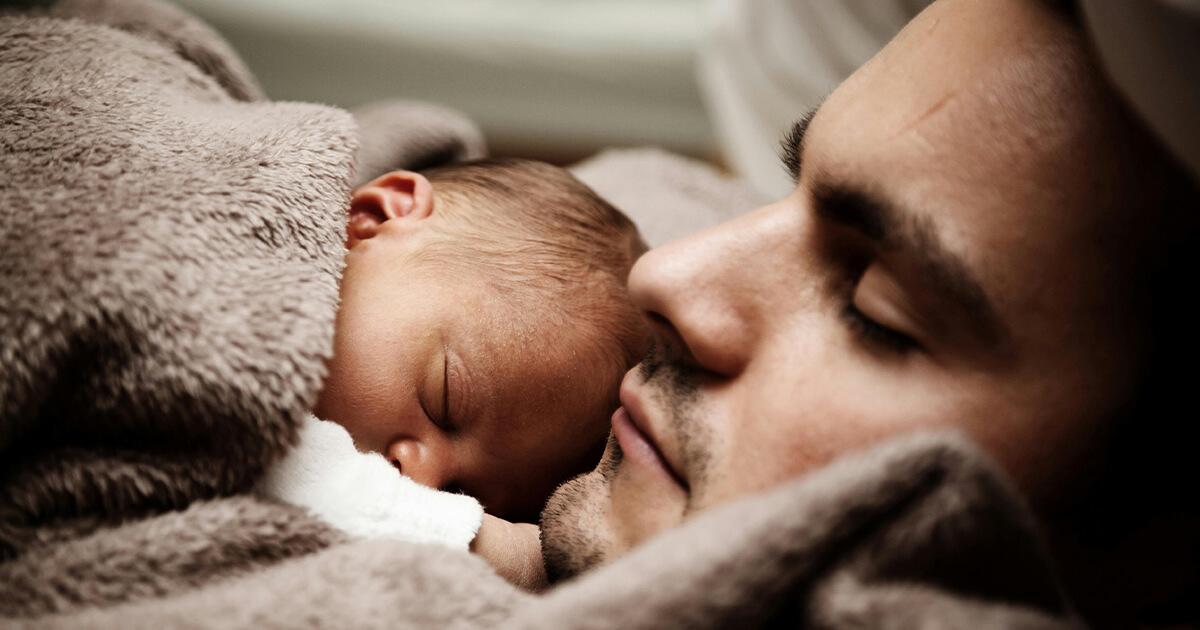Baby Will Only Sleep on Me
Help! My Baby Will Only Sleep on Me – Proven Tips for Restless Moms
Introduction
You’re sleep-deprived, exhausted, and just had a moment of panic because your baby will only sleep on you. You’re not alone in this.
Many new parents, just like you, face this challenge, which can leave them overwhelmed and searching for solutions.
Understanding why your baby insists on sleeping on you can be the first step towards better rest for both of you. This blog will explore the various reasons behind the Baby Will Only Sleep on Me scenario and provide practical tips to help facilitate a smoother transition to independent sleep.

By addressing the root causes and implementing effective strategies, you can create a sleep-friendly environment that benefits everyone in the family.
Understanding Why Babies Sleep on Parents
The Comfort Factor
Babies are comforted by their parents’ warmth and heartbeat. After spending nine months in the womb, their closeness provides a similar environment, making them feel safe and secure.
It doesn’t mean that your baby is being clingy or manipulative; it’s a natural need for comfort.
Separation Anxiety
Separation anxiety often kicks in around six months but can appear earlier. Your baby might wake up and realize you’re not there, causing them distress.
It is a normal developmental phase that most babies go through, and while it’s challenging, it’s temporary.
The Smell of Mom or Dad
Babies have a heightened sense of smell, and they find their parents’ scent comforting. It can be particularly true if the baby is breastfeeding, as the mother’s smell is associated with feeding and comfort.
Key Points of Baby Sleep Challenges
Night Wakings and Sleep Cycles
Babies have shorter sleep cycles than adults, typically around 45 minutes. It means they wake up more frequently throughout the night.
Understanding these sleep cycles can help you develop a better strategy for getting your baby to sleep independently.
The Impact of Sleep Deprivation
Sleep deprivation affects both parents and babies. For parents, it can lead to irritability, difficulty concentrating, and even health issues.
For babies, a lack of sleep can affect their mood and development. Knowing the importance of sleep can motivate you to try different strategies.
Setting a Routine
A consistent bedtime routine can signal to your baby that it’s time to sleep. It could include activities like a warm bath, reading a book, or singing a lullaby. Consistency is key, so try to stick to the same routine every night.
Relevant Statistics and Data
Sleep Patterns in Infants
According to the American Academy of Pediatrics, newborns typically sleep 14-17 hours in 24 hours, but this can vary widely. By six months, many babies sleep through the night but still require two to three naps during the day.
The Effect of Co-Sleeping
A study published in the journal “Pediatrics” found that nearly 60% of parents co-sleep with their infants at some point.
While co-sleeping can make nighttime feedings easier, it’s essential to follow safety guidelines to reduce the risk of Sudden Infant Death Syndrome (SIDS).
Parental Sleep Loss
A survey conducted by the National Sleep Foundation revealed that new parents lose an average of 2 hours of sleep per night during the first year of their baby’s life. It adds up to about 730 hours of lost sleep in one year!
Analysis and Insights
Trends in Baby Sleep Solutions
There’s a growing trend towards using sleep consultants to help parents establish healthy sleep habits for their babies. These experts can provide personalized plans and support, offering a tailored approach to each family’s needs.
The Role of Technology
Baby monitors and sleep-tracking devices are becoming more sophisticated, providing parents with insights into their baby’s sleep patterns. These tools can help identify issues and track the progress of sleep training methods.
Parenting Styles and Sleep
Different parenting styles can influence how babies sleep. Attachment parenting, which emphasizes close physical contact, can lead to babies preferring to sleep with their parents. On the other hand, more independent parenting styles might focus on encouraging babies to sleep in their own space from an early age.
Case Studies and Examples
Emily’s Story
Emily, a new mom, struggled with her baby only sleeping on her for the first three months.
After consulting with a sleep expert, she implemented a consistent bedtime routine and gradually transitioned her baby to a crib. Within a few weeks, her baby was sleeping independently.
Mike and Sarah’s Experience
Mike and Sarah found success using a sleep training method known as the “Ferber Method.” It involved letting their baby cry for short periods before comforting them.
It was challenging initially, but after a week, their baby started sleeping through the night in their crib.
Community Support
Joining parenting groups online can provide many parents, including you, with additional support and tips.
Sharing experiences and learning from others who have faced similar challenges can be incredibly reassuring and helpful. Remember, you’re not alone in this journey.
Expert Opinions on Baby Sleep
- Harvey Karp
Dr. Harvey Karp, author of “The Happiest Baby on the Block,” suggests using techniques like swaddling, white noise, and gentle rocking to soothe babies and help them sleep in their cribs. T
hese methods mimic the womb environment, making babies feel safe and secure. Follow Dr. Harvey Karp
- Sleep Consultant Lucy Wolfe
Lucy Wolfe, a certified pediatric sleep consultant, emphasizes the importance of a consistent bedtime routine and creating a conducive sleep environment. She advises parents to ensure the room is dark, quiet, and at a comfortable temperature. Connect with Lucy Wolfe
- Pediatrician Dr. Tanya Altmann
Dr. Tanya Altmann highlights the benefits of gradual sleep training. She recommends starting with small changes, like moving the baby to a bedside bassinet before transitioning to a crib, to ease the baby into sleeping independently. Follow Dr. Tanya Altmann
Tips for Helping Your Baby Sleep Independently
Gradual Transition
Start by placing your baby in the crib for short periods during the day while they are awake so they get used to the space. Gradually increase the time as they become more comfortable.
Comfort Objects
Introduce a comfort object like a soft blanket or a stuffed animal that has your scent on it. It can provide reassurance when you’re not physically present.
Consistency is Key
Stick to a consistent bedtime routine and schedule. Consistency helps signal to your baby that it’s time to sleep, making the transition smoother.
Public and Community Perspectives
Social Media Insights
On platforms like Instagram and Facebook, many parents share their struggles and successes with baby sleep. Hashtags like #babysleep and #sleeptraining are filled with tips and support from other parents.
Parenting Forums
Forums like BabyCenter and What to Expect have extensive threads where parents discuss their experiences and offer advice. Reading through these can provide new ideas and reassurance that you’re not alone.
Local Parenting Groups
Joining local parenting groups can offer in-person support and advice. Meeting other parents who are going through similar experiences can be a great source of comfort and encouragement.
Conclusion
Navigating the challenges of a baby who will only sleep on you can be tough, but with patience and the right strategies, you can help your baby sleep independently.
Remember, every baby is different, and what works for one may not work for another. Keep experimenting with different techniques until you find what works best for your family.
Your well-being is just as important as your baby’s, so don’t hesitate to seek help if you need it.
Consulting with a sleep expert or joining a parenting support group can provide additional guidance and support.
For more tips and personalized advice, consider booking a session with one of our parenting experts. They can help you develop a customized sleep plan tailored to your baby’s unique needs.
Final Thoughts
We hope these tips help you and your baby get the rest you both need. Remember, you’re not alone in this journey. Many parents have faced similar challenges and found solutions that work for them.









